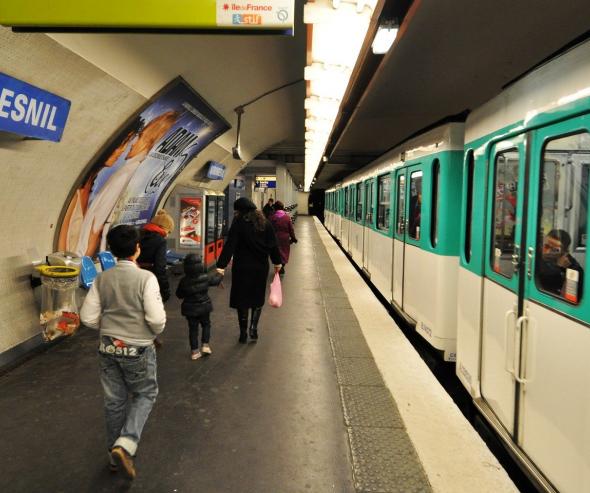15 April 2015: Urban transport

The Autorité de la concurrence has obtained commitments from the SNCF group that will make it possible to level the competitive playing field for companies submitting tender bids for technical assistance to urban transport operators.
Following a procedure initiated before the Autorité de la concurrence by Transdev, the SNCF has made a series of commitments. These are designed to prevent its subsidiary Keolis, active in the competitive urban transport market, or any of its other subsidiaries, from mobilising the parent company’s railway expertise for its own advantage to submit bids that are not replicable by competitors for contracts to supply advice and technical assistance to urban transport operators.
The sector
Communities and local authorities are responsible for the organisation of urban transport services (bus, metro, tram, etc.). They can subcontract the provision of these services, by public service delegation, to specialist operators such as Keolis (a subsidiary of the SNCF), Transdev, RATP Dev or Carpostal. They can also provide such services themselves, alone or in groups. In all cases, the local authorities, the Authorities Organising Public Transports (Autorités Organisatrices de Transports Urbains/AOTU) and their offshoots (public, semi-public companies, etc.) may have recourse to external providers of advice, technical assistance and support to help them in the operation of their network and in their projects.
Transdev’s complaint
At the end of 2012, the Compagnie des Transports Strasbourgeois/CTS (a semi-public company operating the urban transport network for the Urban Community of Strasbourg) awarded a public contract for technical assistance to a group made up of two SNCF subsidiaries: Keolis and SNCF Partenariat. The latter is another SNCF subsidiary which does not have its own resources, but according to its company purpose, specialises in providing support to the authorities organising transport. The CTS justified its choice on the basis of the relevance of the rail and intermodal proposals submitted by Keolis, in particular in the form of a study on the "urban train" in the city.
Transdev, a failed candidate for this very contract, filed a complaint with the Autorité de la concurrence. It accused the SNCF group of having abused its dominant position on the monopoly passenger rail transport market, by mobilising resources arising from the operation of the monopoly to support its activities within the competitive realm.
Competition concerns
In its decision of 27 June 2013 (see press release of 27 June 2013), the Autorité de la concurrence rejected the request for interim measures submitted by Transdev, on the grounds of lack of urgency.
Nevertheless, it continued the investigation on the merits of the case, on the basis that it is not excluded that the group might have used resources resulting from the rail monopoly as leverage to give its subsidiary Keolis an advantage on the technical support bids.
Indeed, given the prominence of rail over other modes of transport, the growing needs for intermodality in urban transport and the clear connectedness between the transport market and the technical support market, the direct provision of the SNCF group’s expertise, via the SNCF Partenariat subsidiary (a structure without dedicated resources which uses the rail operating authority’s executives, image and reputation) was likely to give Keolis a decisive advantage in responding to the communities’ tenders.
The proposed and accepted commitments
In response to the competition concerns identified by the investigation services, the public establishments SNCF and SNCF Mobilités1 and their subsidiaries SNCF Partenariat and Keolis jointly proposed a set of commitments to the Autorité de la concurrence, which were enhanced following the consultation organised by the Autorité and during the session that followed.
These commitments are notably as follows:
- neither SNCF, nor SNCF Mobilités may submit tender bids for a technical support contract to urban transport operators, whether alone or as a group;
- only fully autonomous subsidiaries of SNCF or SNCF Mobilités which have, in particular, sufficient quantities of their own human and material resources (as is the case with Keolis), may submit tender bids;
- recourse to the know-how and resources resulting from the operation of rail transport will be possible to respond to requests in invitations to tender in the technical support market made by authorities organising transport. However, this must follow a specified procedure, which is open in a non-discriminatory manner to all players in this market.
These commitments, undertaken for a period of five years, may be extended by the Autorité, in particular if the regional passenger rail transport market fails to open up during this period.
An independent trustee approved by the Autorité will monitor the proper execution of these commitments.
Considering that these commitments address the identified competition problems, by allowing better functioning of competition in markets of technical support to authorities organising urban transport, the Autorité makes them binding and closes the procedure initiated before it.
1 Since the law on rail reform came into force on 1 January 2015, the public railway group comprises three industrial and commercial public establishments, notably SNCF and SNCF Mobilités, which operates the trains.
> Press contact: Rebecca Hébert / Tel.: +33 (0)1 55 04 01 81 / Email
